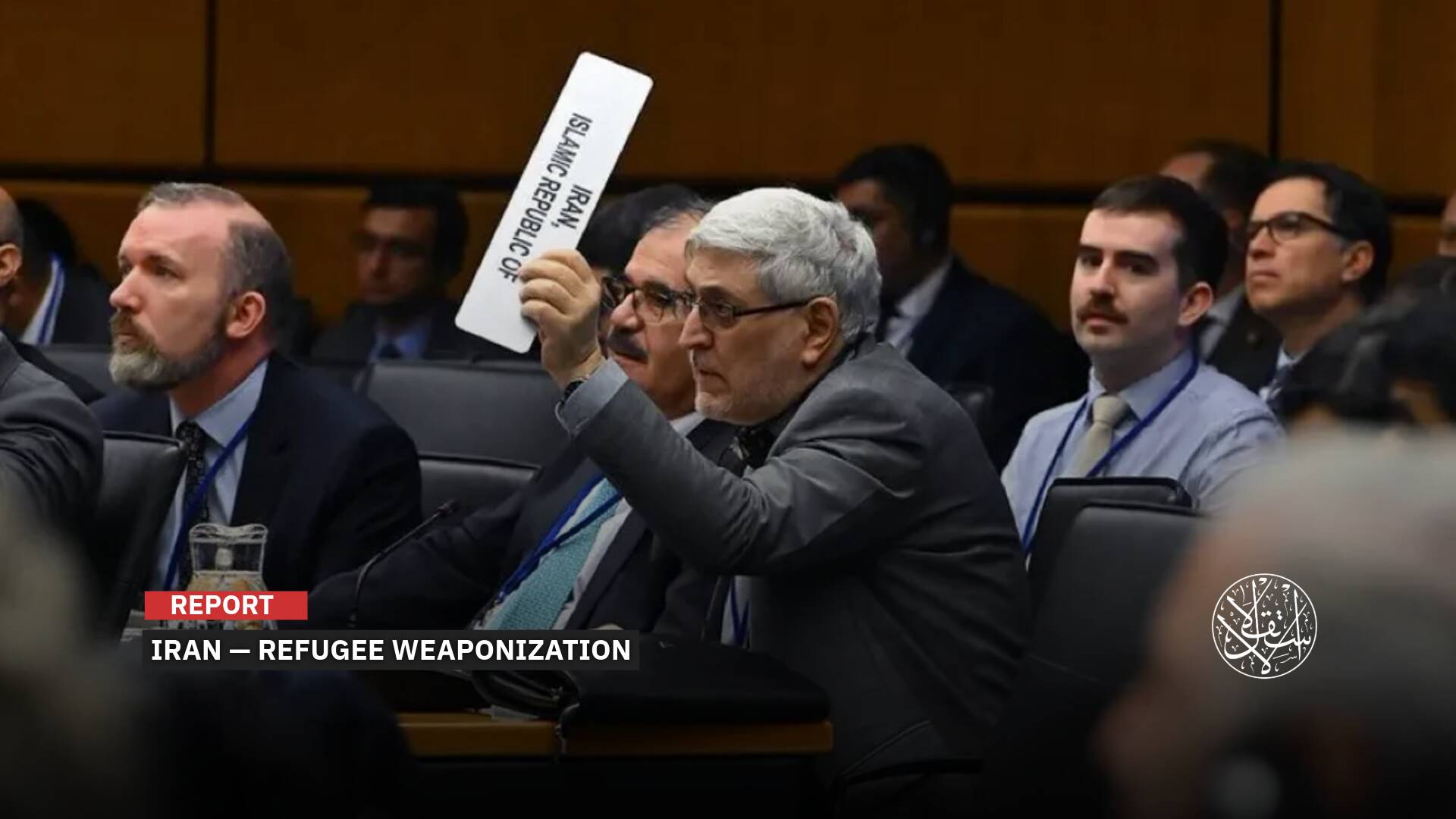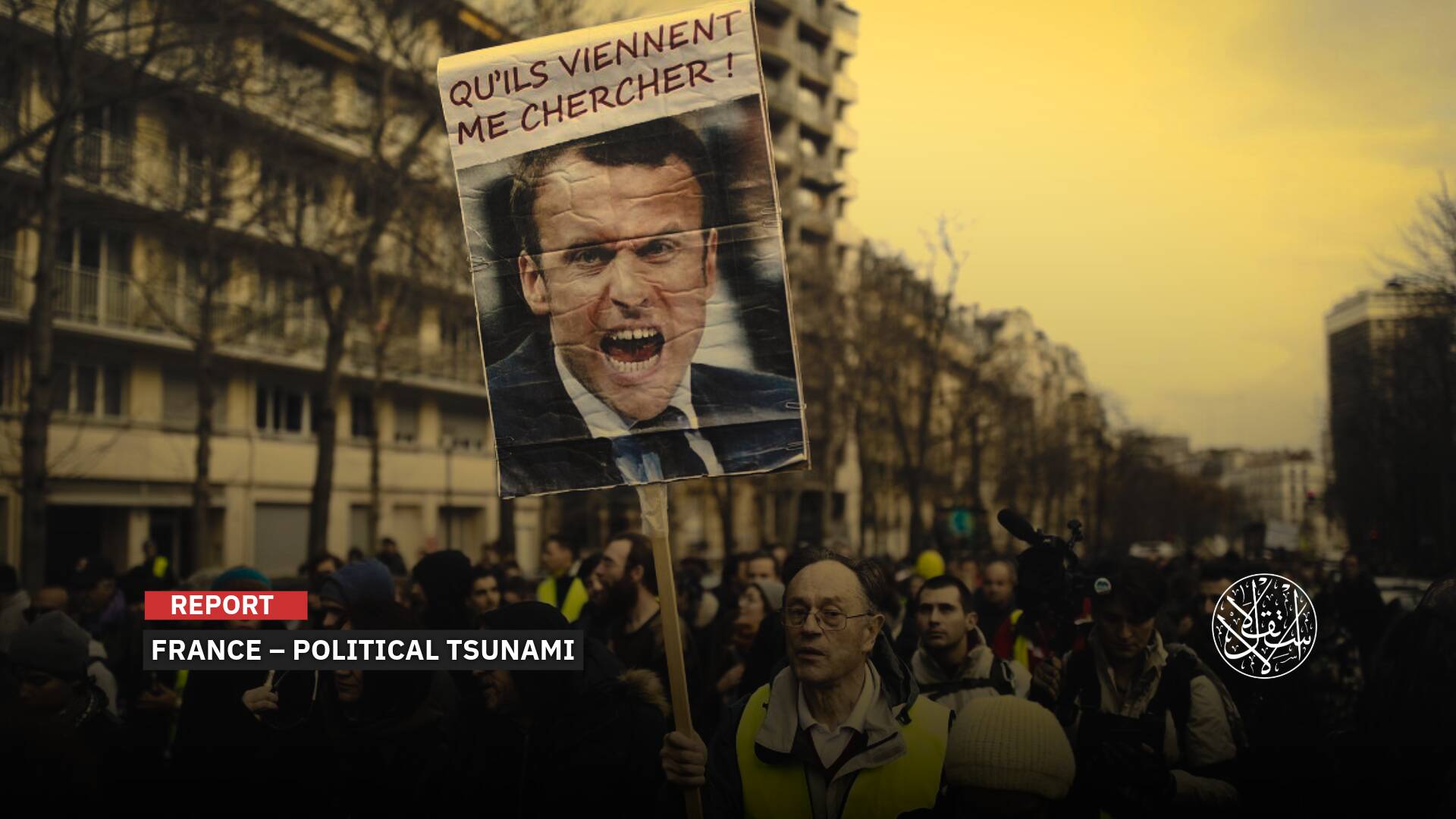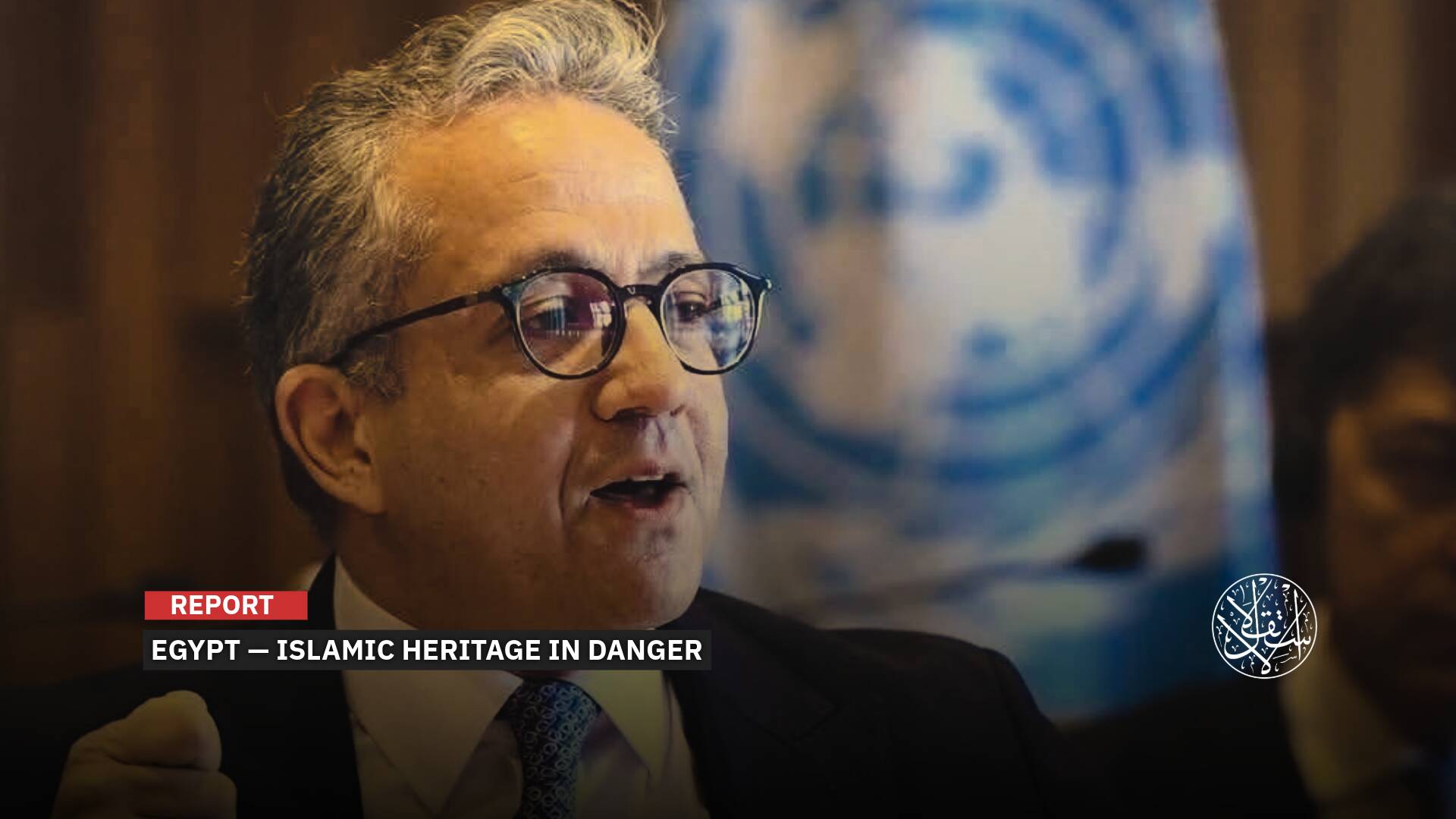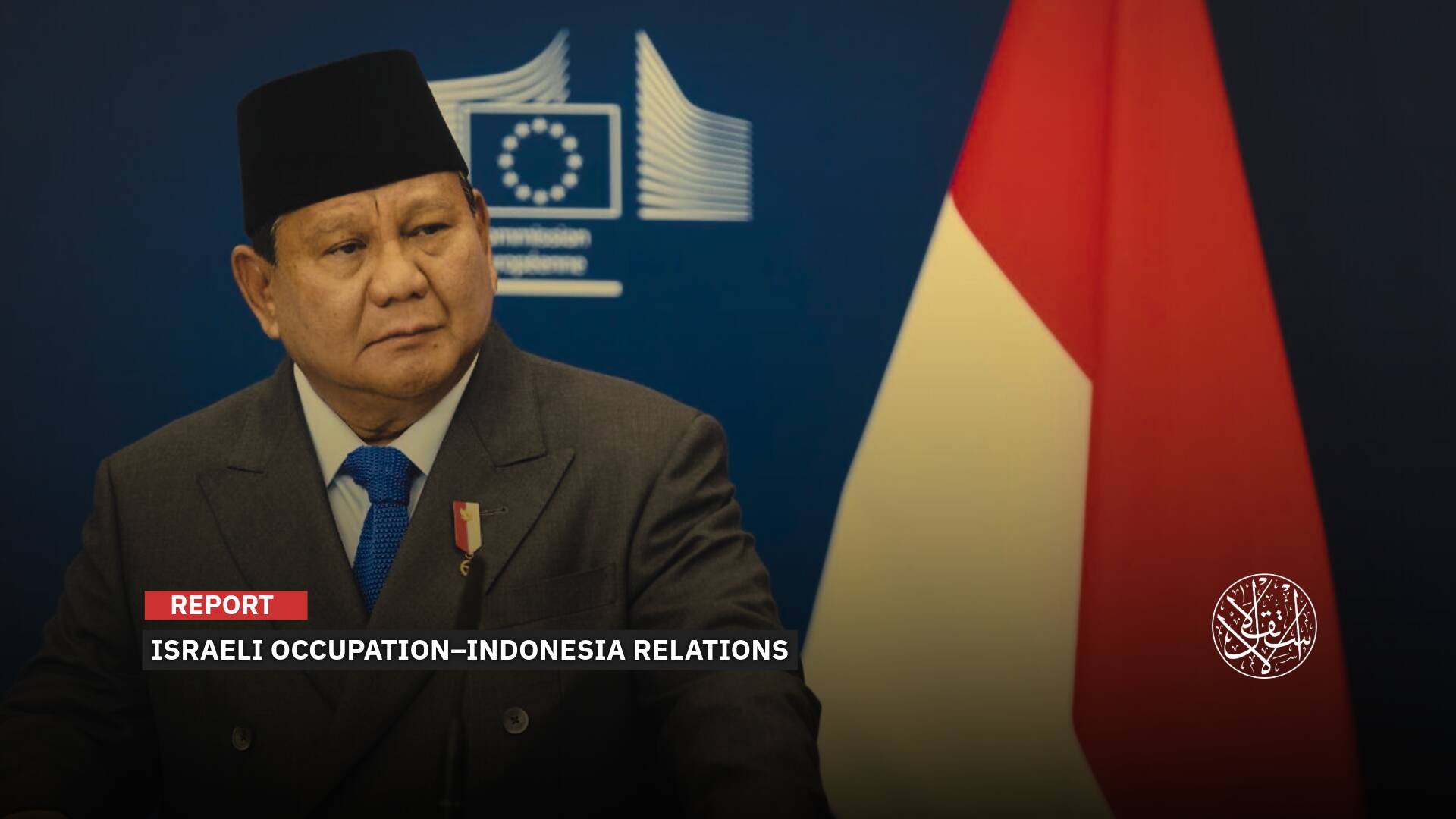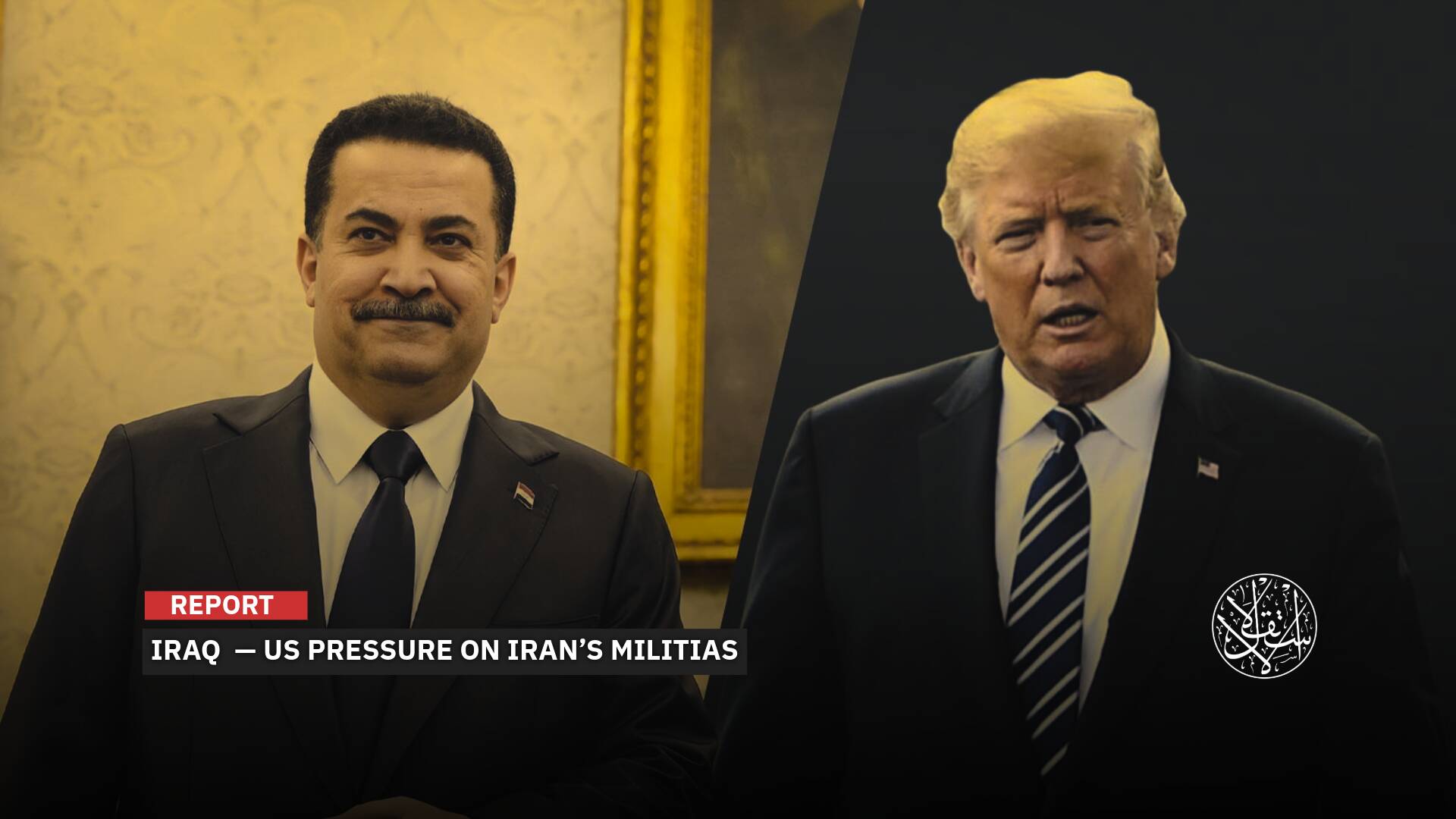By Remaining Silent: How the Assad Regime Benefits from the Assault on Gaza

The calm on the Syrian front with “Israel” didn't come without a cost.
Syrians continue to mock the pristine military uniforms of Bashar al-Assad's regime's soldiers and officers, which have remained spotless since the Israeli assault on Gaza began in October 2023.
Assad's regime has maintained silence, not launching a single missile toward “Israel in support of Gaza, keeping the Golan Heights front, occupied since 1967 in southern Syria, quiet and isolated from the events in Palestine.
Assad’s Silence
The Syrian regime has not allowed any protests within its controlled areas or in the capital, Damascus, to denounce the genocide against the people of Gaza.
The Syrian regime has evidently positioned itself to assess the unfolding events in Gaza and exploit them to its advantage. It seeks to utilize the conflict as an opportunity to forge closer ties with the West, aspiring for a normalization process akin to what has occurred with Arab nations.
Despite being part of The Axis of Resistance led by its ally Iran, Assad's regime specifically refrained from any form of participation in supporting Gaza among all of Tehran’s affiliates.
The Syrian regime did not even issue statements supporting Hamas against “Israel.”
This sharp criticism of Assad’s regime stems from its decades-long stance of championing Palestine and claiming it as "Syria's central cause, which it defends with all its might."
The regime's rhetoric went further when its parliament speaker, Hammouda Sabbagh, stated in Tehran that the wars and harsh economic measures Syria has faced since 2011 were due to its support for Palestine and its people.
Given these facts, a closer look can be taken at the various reasons and tactics that have driven Assad’s regime to focus on exploiting the Gaza events to gain political rewards and benefits.

It became apparent that the Syrian front's silence toward “Israel,” without engaging or pressuring it, "was not without cost," according to observers.
Since the beginning, the UAE warned the Assad regime against intervening in the conflict between Hamas and "Tel Aviv" or allowing attacks on “Israel” from Syrian territories, according to informed sources familiar with Emirati diplomatic efforts, speaking to Axios on October 9, 2023.
UAE officials directed their messages to high-ranking Syrian figures and briefed the administration of U.S. President Joe Biden on their contacts with Syrians, according to the sources.
The UAE, which has cemented its relationship with the Syrian regime since 2018, holds more influence with it than most Arab countries in the region.
Emirati–Israeli relations have been very close since the normalization of relations between them was signed in 2020, especially with Israeli security apparatuses.
According to U.S. officials, one of the main goals of U.S. policy since the Israeli aggression on Gaza, which resulted in more than 34,000 casualties, is to prevent escalation in the region and expand the war to other fronts.
In this regard, U.S. National Security Advisor Jake Sullivan tweeted on October 9, 2023: "We are working with regional partners to warn anyone who might seek to take advantage in this situation."
Experts believe that the Assad regime feared the implications of igniting the Syrian front at this time on the strength of its regime.
It is likely that any strikes targeting regime military institutions, if they clash with “Israel,” would weaken Assad himself, posing a direct threat to his future in power.
Bashar al-Assad has succeeded in keeping the Golan front quiet since assuming power, inheriting it from his father Hafez after his death in 2000.
Amid the ongoing Israeli aggression on Gaza, Assad acknowledged the existence of occasional meetings with the United States without reaching anything, according to the Syrian Arab News Agency (SANA) on April 21, 2024.
In response to a question about whether there is a long-term chance of dialogue with the West, Assad said, “There is always hope: even when we know there will be no results we must try,” as “politics is the art of the possible."
Many observers have placed Assad's statements in the context of his efforts to float his regime after more than a decade of diplomatic isolation, which he began to break through by granting Syria a seat at the Arab League in May 2023.
This seat was withdrawn from Assad in November 2011 for suppressing the Syrian revolution, which led to the deaths of more than half a million people and the displacement of more than 15 million Syrians internally and externally out of 25 million people, in addition to the destruction of Syrian cities by airstrikes and barrel bombs.
For this reason, many observers link Assad's silence toward Gaza to his efforts to exploit the current war as an opportunity to secure strategic gains and reap some rewards.
Political Investment
In this context, analyst and military strategist Colonel Ahmad Hamada believes that "the Assad regime benefits from crises as happened during COVID-19 by receiving international aid and when the earthquake occurred in 2023, some Western sanctions on him were temporarily suspended to assist the affected."
Hamada added to Al-Estiklal, "Today, in the war on Gaza, the same scenario is repeated where the Assad regime seeks to politically benefit from what is happening, as its non-intervention and refusal to allow any party to use Syrian territories as a launching pad against Israel aim to achieve gains."
He noted that "the Assad regime justifies its silence by applying the disengagement agreement between Syria and Israel related to the Golan Heights in 1974."
The agreement signed on May 31, 1974, is the final scene after a war of attrition in which military operations between the regime forces and “Israel” resumed in the occupied Golan.
Negotiations for separation and disengagement between the two parties were held at the initiative of the United States during the tenure of then-Secretary of State Henry Kissinger, and the document was signed in Geneva.
Hamada pointed out that "there are Russian guarantees in southern Syria, and Russia has deployed 14 points along the border with Israel."
Deputy Head of the Russian Reconciliation Center for Syria Major General Yury Popov reported in early April 2024 that Russia had established an additional military police center in the Golan Heights area, indicating that it will monitor the suitability of ending the disputes between the parties.

"The regime, which deployed the 90th and 61st brigades to protect the ceasefire on the Golan, will be rewarded by Israel and the United States for this reason. That's why the Joe Biden administration recently did not sign the anti-normalization law with the Syrian regime, reflecting what Assad said about our ongoing communication with the United States."
The White House objected to including the anti-normalization bill with the Syrian regime in a complementary support package of laws approved by Congress and signed by President Joe Biden at the end of April 2024.
The U.S. House of Representatives approved the Anti-Normalization with Bashar al-Assad Regime Act in mid-February 2024, with significant support from both Republican and Democratic parties.
The legislation stipulates that U.S. policy prohibits any official recognition or normalization of relations with any Syrian government led by Bashar al-Assad.
The legislation holds the Bashar al-Assad regime responsible for supporting terrorism and committing mass murder against the Syrian people, and affirms that the United States is prepared to impose costs on governments seeking normalization or entering into trade agreements with it.
‘A Major Prize’
Immediately, many described the White House's actions as a "scandal" for intervening at the last minute to withdraw the anti-normalization bill with the Assad regime, which the Senate would have approved as part of an urgent package of laws.
Some saw it as a "major prize" granted to Assad for his silence on the events in Gaza, estimating that the law would have been a fatal blow to the regime, meaning it is still breathing.
On April 30, 2024, The Washington Post reported that the Joe Biden administration's policy opposes normalization with Assad, especially through sanctions until he stops the massacre, but behind the scenes, it deliberately and quietly eases this pressure, according to lawmakers in both parties and Syrian-American groups.

Columnist for The Washington Post, Josh Rogin, stated that currently, the world is teaching all dictators a lesson on how to commit crimes against humanity, evade accountability, and eventually gain acceptance in the international community.
He explained that the Joe Biden administration is contributing to writing this manual, implicitly allowing normalization with Bashar al-Assad.
He pointed out that after 13 years since the start of the Syrian revolution, Assad continues to commit war crimes and crimes against humanity, including shelling, imprisoning, and torturing thousands of civilians, while actively working to further destabilize the Middle East in partnership with Russia and Iran.
Mohammed Alaa Ghanem is the Senior Political Adviser, Government Relations Director, and Strategist for the Syrian American Council in Washington D.C believes that the Joe Biden administration is trying to freeze the Syrian file — as the former U.S. President Barack Obama administration did before — and does not want to work on any political transition in Damascus at the moment.
He added in press statements that there has long been opposition from the Israeli government to any attempt to replace Assad because it prefers to deal with him, and it is difficult for it to guess what any future regime in Syria might do.
There are Arab and non-Arab states that have sought to normalize their relations with the Syrian regime and have leveraged the 2023 earthquake to revitalize these efforts. These countries have made efforts with the U.S. administration to obstruct this law.
Ghanem noted that the normalization countries — whether Arab or non-Arab — present themselves as mediators between the Joe Biden administration and the Syrian regime, marketing normalization as the best solution to the Syrian crisis.
He believed that these countries have recently conveyed messages to the Syrian regime not to move a finger regarding the Israeli aggression on Gaza, as reported by Western newspapers. In return, they will be rewarded, and perhaps obstructing the anti-normalization bill could be part of this reward.
Sources
- Washington Post: Biden obstructed the draft law against normalization with the Assad regime [Arabic]
- The American Coalition for Syria: Biden is secretly protecting the Assad regime [Arabic]
- The "disengagement" agreement between Syria and Israel is back on the table [Arabic]
- Russia establishes a new military police center in the occupied Golan [Arabic]



